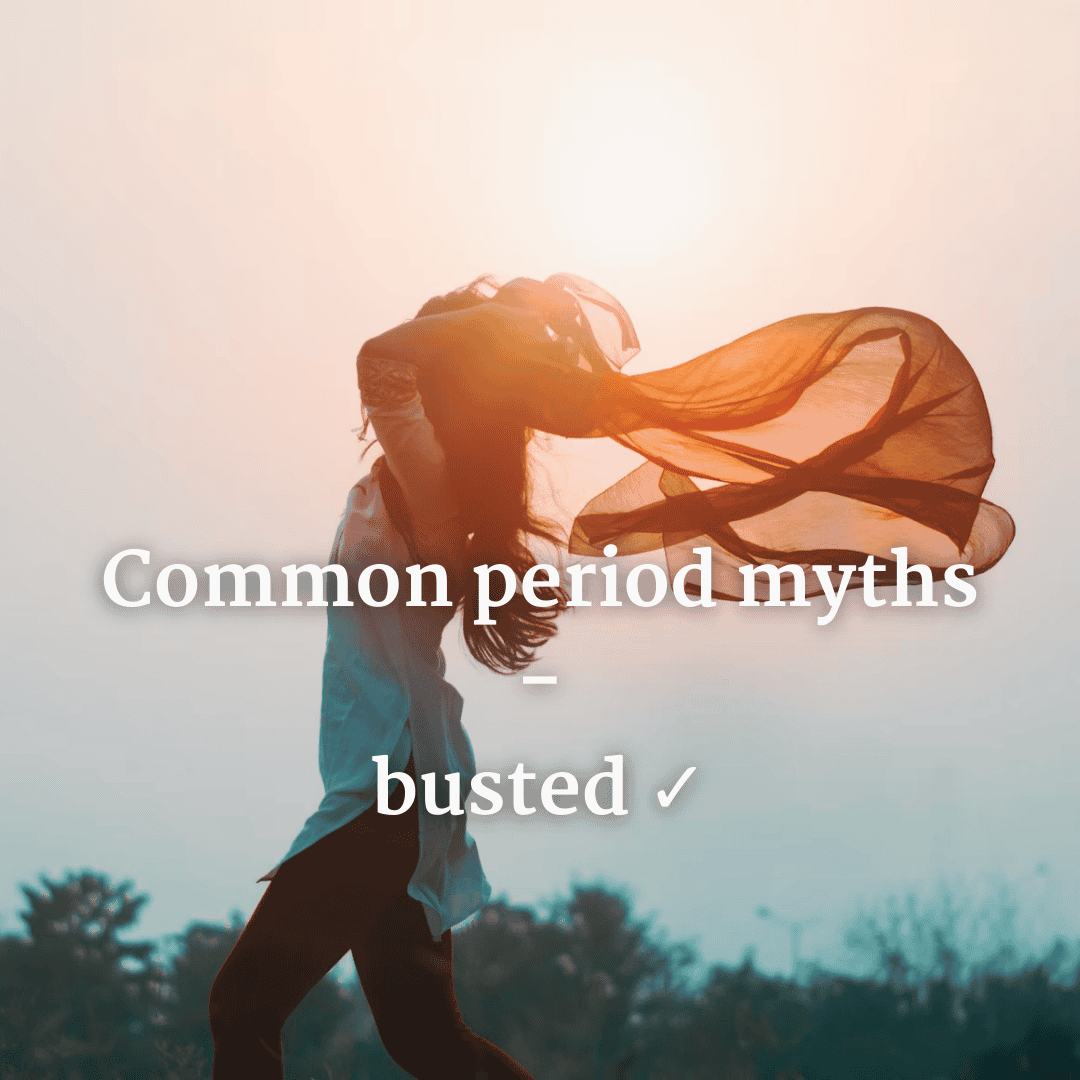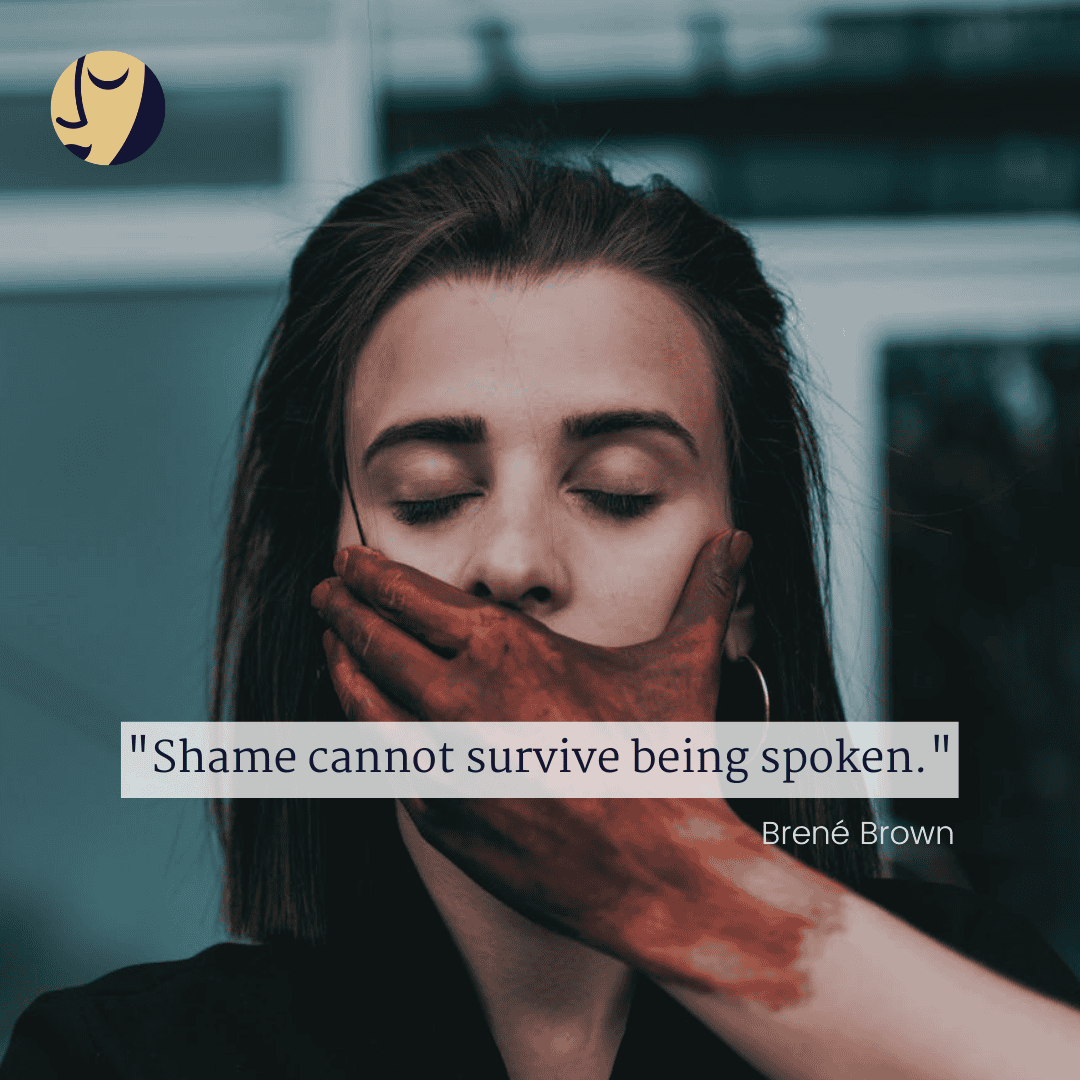
🌟 Unmasking the menstrual myths: empower your cycle wisdom! 🌟
Get ready to embrace your cycle power!
If you are anything like me, you've always believed your period to be an annoying part of your life. You probably dreaded it, and you definitely always made your plans around it. But what if I told you that most of those beliefs come from a really long history of misinformation? Are you ready to debunk some of the most common period myths and embrace your cycle wisdom? 🌸💪
In this empowering blog article, we'll unravel the truth behind eight prevalent myths that have been circulating for ages. It's time to break free from misconceptions and equip ourselves with evidence-based knowledge about our bodies and menstrual cycles. So, let's roll up our sleeves and dive right into busting these myths one by one!
Many folks use the terms “period” and “cycle” interchangeably, but they are not the same! Your menstrual cycle encompasses a series of phases, each with a unique purpose. The period is just one of these phases, known as the menstrual phase, where your uterus sheds its lining. Understanding the entire cycle is vital to unlock the true power of your menstrual health.
Don't let this myth fool you! Cycles vary from person to person, and a “standard” 28-day cycle isn't the norm for everyone - in fact, a 2020 study of 4.9 billion cycles found the global average cycle length to be 29.7 days. The length of your cycle depends on factors like hormones, stress, and overall health. Believing that ovulation day is always set on day 14 can have big consequences (in cis-hetero sexual encounters); it shifts based on the length of your cycle. This is why tracking your cervical mucus or basal body temperature are vital in determining your most fertile day. Embrace your unique cycle and celebrate its diversity!
While pregnancy is possible on fertile days, it's not a 24/7 affair! Your fertility ebbs and flows throughout your cycle. The fertile window typically spans a few days leading up to and during ovulation (mostly due to the beneficial vaginal environment for sperm and their ability to survive for up to 6 days). Understanding your fertile days can be a game-changer if you're planning a pregnancy or trying to prevent one.
And for those who are not in need of or interested in facilitating or preventing pregnancy, tracking your fertile window is a crucial aspect of your overall health: ovulation and the signals your boy is sending you have a myriad of health benefits, which is why it is considered the fifth vital sign in people assigned female at birth (AFAB people).
Sure, some discomfort is normal during menstruation, but crippling pain and severe PMS might indicate underlying issues. Don't ignore your body's signals! And please stop believing the inherent lie that pain is a normal part of female biology! Pain is never normal, and consistent or recurring pain is not natural. Exploring natural ways to alleviate period discomfort and managing PMS symptoms can lead to a smoother, more enjoyable cycle.
Sign up to our newsletter, so you don't miss next week's article with tips to alleviate period pain!
Hold on tight, lunar lovers! Many believe in a mystical connection between the menstrual cycle and the moon's phases. The Baba Yaga Cycle Coaching app even relates the cycle phases to inner moon phases. While scientific evidence is limited and there is an ongoing heated debate about whether it makes sense that we all cycle in perfect sync with the moon, embracing this belief can add a touch of magic to your cycle journey! After all, it's interesting that both our cycle and the lunar cycle are approximately 29.5 days long.
Time to bust this age-old stigma! Menstrual blood is a natural bodily function and perfectly hygienic. In fact, period blood is actually “a renewable and sustainable source of stem cells”, and not just that: menstruation is anti-bacterial, anti-fungal, and anti-microbial!
Of course, having access to the period products you love and learning to use them correctly, ensure a clean and comfortable period experience, on top of all of that biological magic.
While it's less likely, there's still a possibility of conception during your period (in case of unprotected, penis-in-vagina sex). Sperm can survive in the body for several days, and if your cycle is short, you might ovulate soon after menstruation. So, if you're not planning a pregnancy, using reliable birth control methods is crucial.
Not exactly! Hormonal birth control can impact your cycle, but it doesn't “regulate” it in the traditional sense. It does prevent ovulation, making your cycle different from a natural one. Understanding how hormonal birth control works can help you make informed choices about your reproductive health.
Sign up to our newsletter, so you don't miss when we post a series about the many different forms of birth control!
In the meantime, follow us on TikTok and Instagram for an in-depth look at what's available to us.
Congratulations, you've successfully unmasked these eight common menstrual myths and gained valuable insights into your cycle! 🌙💪 Embracing the truth empowers us to make informed decisions, understand our bodies better, and live healthier lives in sync with our menstrual cycles.
Remember, knowledge is power! Continue to educate yourself and others about menstrual health, breaking taboos, and challenging misconceptions. Celebrate your unique cycle journey, and let's empower one another in this quest for menstrual wisdom! 🚀🩸

Don't forget to stay connected! Together, let's rewrite the narrative around menstruation and thrive with confidence and empowerment! 💕📲